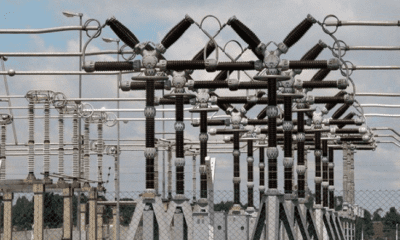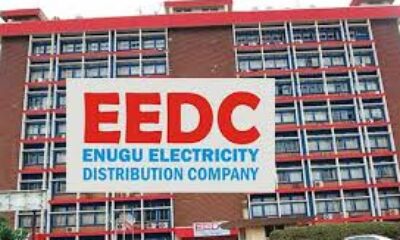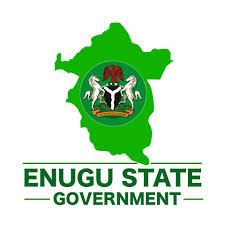News
N3.2tn electricity subsidy needed – NERC gives reason for tariff hike

The Nigerian Electricity Regulatory Commission, NERC, says the federal government needs to provide N3.2 trillion in subsidies in 2024 to reverse the recent electricity tariff hike.
The Nigeria Electricity Regulatory Commission Chairman, Sanusi Garba, said this in Abuja during a Thursday meeting with the House of Representatives Committee on Power.
Recall that on April 3, 2024, NERC announced an almost 245 per cent electricity tariff hike for Band A customers, getting 20 power supplies.
However, the tariff hike received condemnation among Nigerians, organized private sector groups, the Nigeria Labour Congress, the Trade Union Congress, and other organizations.
However, at the Committee on Power, Garba said the tariff hike was needed to boost current investment in the sector and improve power supply.
He added that if a total sectoral overhauling was not carried out, including fluctuation in foreign exchange, power supply in Nigeria would continue to pose a challenge.
He explained that before the recent review in tariff, distribution companies were only obligated to pay 10 per cent of their energy invoice, adding that the lack of cash backing was creating a liquidity challenge in the sector.
He further explained that between January 2020 and January 2023, the electricity tariff increased from 55 per cent to 94 per cent, adding that “the unification of FX and current inflationary pressures are pushing cost reflective tariff to N184 kilowatt per hour.”
He said, “If sitting back and doing nothing is the way to go, it would mean that the National Assembly and the Executive would have to provide about N3.2 trillion to pay for subsidy in 2024.”
Garba also said that only N185 billion of the N645 billion subsidy in 2023 has been cash-backed, leaving a funding gap of N459.5 billion.
“The committee cannot take any decision to stop the increase in tariff. That decision can only be taken by the entire House and not at the committee level. There must be a House resolution to stop it,” he said.
On his part, the Chairman of the Committee, Victor Nwokolo (PDP, Delta), said the essence of the meeting was to address the recent increase in tariff and the various bands to which electricity consumers were recently categorized.
The lawmaker said the officials of NERC and Discos had given the committee helpful information, noting that “we have not concluded with them because the transmission company of Nigeria was not here and the generation companies too.
“We will hold further consultations with them by next week. But what they have said, which is true, is that without the change in tariff due in 2022, the industry lacks the capital to bring the needed change.
“Of course, with the population explosion in Nigeria, the areas being covered are beyond what they estimated in the past, and because they need to expand their network, they also need more money.’’
Meanwhile, since the tariff hike, power supply has worsened nationwide as Nigerians grapple with darkness daily.
News
NDDC pledges to collaborate with Rotary International
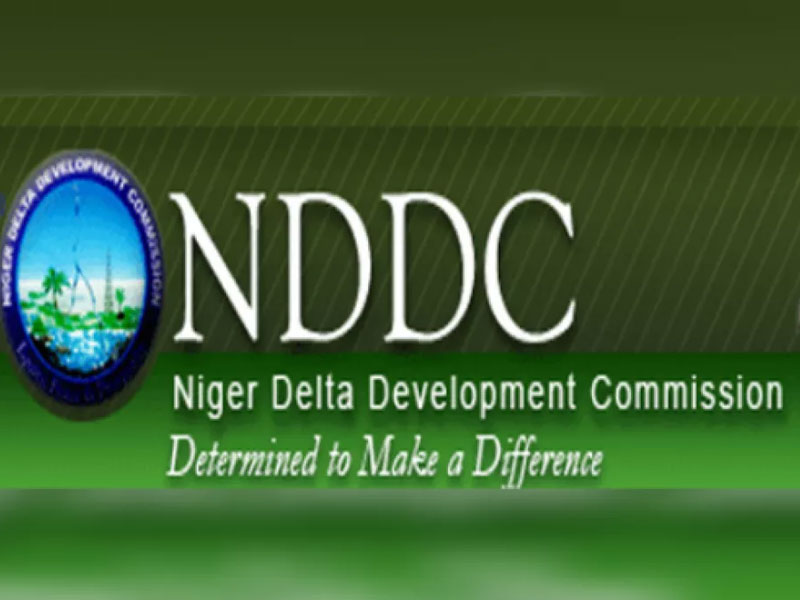

The Niger Delta Development Commission (NDDC) has pledged to collaborate with Rotary International to enhance the delivery of services and the execution of development projects in the Niger Delta region.
The NDDC Managing Director, Dr Samuel Ogbuku, made the promise when a delegation from Rotary International District 9141, led by the Governor-Elect, Mr. Chinedu Ikegwuani, paid him a courtesy visit at the Commission’s headquarters in Port Harcourt. The delegation included a former Acting MD of NDDC, Mrs. Ibim Semenitari.
Ogbuku emphasised the need for partnerships in fast-tracking the development of the Niger Delta region, noting that the NDDC found it expedient to introduce new policies to drive the development process.
He said, “One of the new policies we introduced is the ‘Rewind to Rebirth’ initiative, a strategic vision designed to recalibrate engagement with Niger Delta stakeholders and the Commission’s overall intervention implementation plan.”
Riding on the spirit of rebirth, he said, the NDDC embraced the Public-Private Partnership, PPP, as a major policy thrust and organised a PPP Summit in Lagos on April 25, 2023.
The NDDC boss noted that the Commission had recorded many gains from the PPP initiative, citing the signing of a Memorandum of Understanding, MoU, with the Nigeria Liquified Natural Gas Limited, NLNG, as one of such gains.
According to him, the collaboration with NLNG would facilitate the execution of some legacy projects such as the Bonny Ring Road and the Kaa-Ataba Road and Bridge, linking Khana Local Government Area to Andoni LGA in Rivers State.
According to Ogbuku, another initiative taken by the NDDC was the introduction of a youth development and empowerment scheme, known as Holistic Opportunities, Projects and Engagement, HOPE, to create a comprehensive database of the youth population of the Niger Delta region.
He noted, “Project HOPE marks a turning point in youth development and empowerment because it is meant to provide a platform to empower youths of the region on sustainable basis.”
Ogbuku stated that the Commission developed a new concept of working with the Niger Delta Chamber of Commerce, Industry, Trade, Mines and Agriculture, NDCCITMA, in the training of youths and young entrepreneurs in the Niger Delta region, noting that the board of the Chamber of Commerce had been inaugurated.
He said further, “The Commission has come up with the Triple T Policy, which represents Transiting from Transaction to Transformation, to ensure accountability and transparency in our processes.
“To ensure that a new institutional culture, anchored on sound ethics and good corporate governance is in place, the Commission engaged KPMG, a reputable global business consultancy, to review and strengthen our corporate governance system, as well as improve our internal processes and institutional protocols.”
In his remarks the Governor-Elect of Rotary International District 9141, Mr. Chinedu Ikegwuani, acknowledged the contributions of the NDDC to the development of the Niger Delta region.
He said, “We are here to discuss partnership with NDDC. We thank the management of NDDC for its numerous transformational projects across the Niger Delta Region.
“We believe that by joining forces with the NDDC, our efforts to improve the living conditions of the people of this region will be enhanced. This collaboration will help us to consolidate our achievements in alleviating poverty in the society.”
The District Governor-Elect highlighted some of the achievements of Rotary International, which included kicking out wild Polio virus in Nigeria and Africa as a whole.
News
Benue Workers’ welfare topmost priority — Gov. Alia
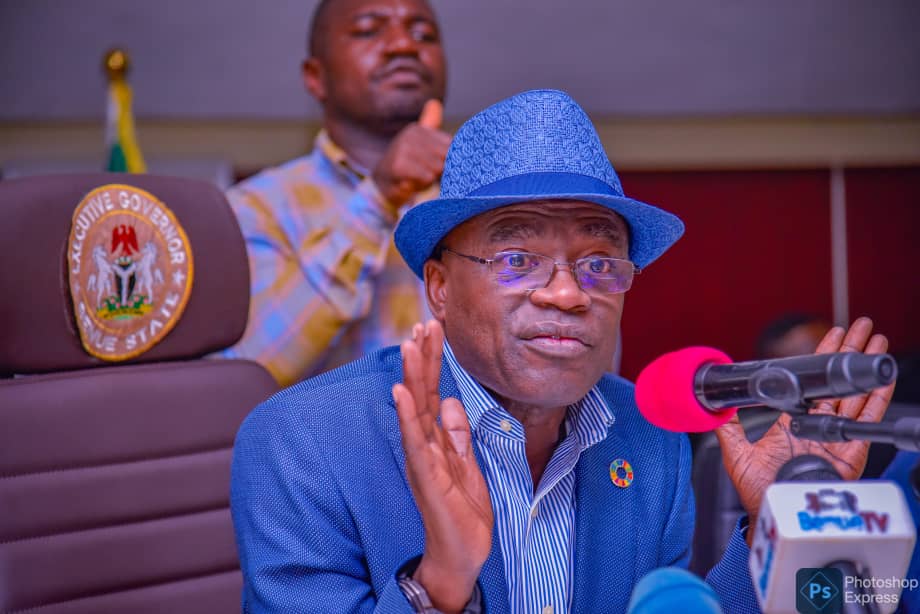

Gov. Hyacinth Alia, on Wednesday promised to continue to prioritise the welfare of workers in Benue State.
Alia made the pledge in a statement signed by his Chief Press Secretary, Tersoo Kula, on Wednesday in Makurdi.
The governor commended the workers for their immense contributions towards the overall development of the State.
He said the theme of the year 2024 International Labour Day, “Ensuring Safety and Health at Work in a Changing Climate,” was in line with his administration’s agenda of enhancing workers’ welfare and conditions of service.
Alia said he was already working towards achieving the objective of the theme, having renovated the State Secretariat and also provided a dedicated 33KVA transformer to ensure steady power supply and give the workers a healthy and conducive work environment.
According to him, apart from the prompt payment of workers’ salaries, his administration will continue to pay owed arrears, attend to issues of promotions and allowances and ensure training and retraining of the workers.
He charged the workers to always imbibe the culture of transparency, compassion, accountability and honesty.
He urged them to continue to support his efforts by delivering on their assigned roles as workers of the state, and to also remain apolitical at all times.
News
Extreme poverty plagues retirees in their golden years
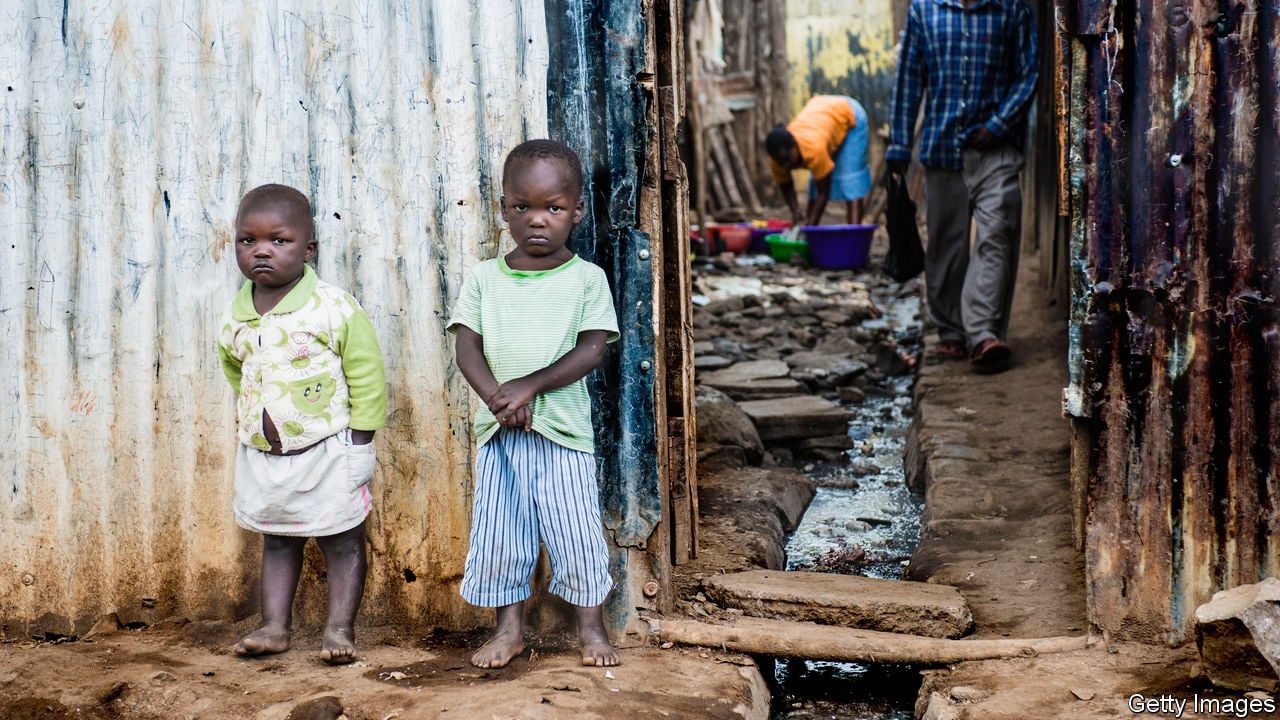

By Toheeb Babalola
Ezekiel Olaigbe, 89-year-old, inherited Bricklaying – one of the well-paid oldest professions in Africa, from his deceased father decades ago. A common mentality of the earliest generations was to ensure that the first sons emulate their fathers’ steps and maintain the main family’s source of income. In those days, the bricklayers were treated like Kings in their local domains, many pretty ladies crushed and wished to be their wives. Because they were very rich.
The profession provided Olaigbe’s family a two-storey building at Salako Lawal Compound Labiran in the Ibadan North East Local Government. Since his elementary education, the young Ezekiel had been learning the rudiment of bricklaying and following his father to construction sites. At that age, he could mix sand with water which made his father’s work faster.
He, before the death of his father, had started helping residents to build shops and get contracts from reputable organisations. He also engaged in house sourcing and management. Eventually, he moved out of his father’s house to establish his own family.
“When my business was growing, I decided to relocate, married a wife and started having my own children. And stay far away from my father’s house. My Children went to standard schools and enjoyed all the privileges I did not get. Some of them have graduated from tertiary institutions and currently in labour markets’,’ He said in an interview with Nigerian NewsDirect.
In recent times, old age has set in for Ezekiel, he is now walking with a stick and eyeglasses. He has medical challenges and does not have enough strength for work again. The dwindling economy causes him to eat once per day, let alone afford to pay medical bills. His wife died years ago, while some of his educated children are still battling for better employment.
Over 719 million are in extreme poverty globally at the moment, and 50 percent of that number inhabit Africa. The leader of ECOWAS, Nigeria, has a 15 percent share with over 133 million people experiencing nothing less than low standard of living, health services and unemployment.
A month later, a resident introduced Ezekiel to Alesanmi Senior Citizens Foundation (ASCF), a non-profit organisation that provides free medical services and welfare for the aged between 60 and above on a monthly basis. In his first month at the organisation, Ezekiel was diagnosed by the medical students of University College Hospital (UCH), the prominent teaching hospital in Nigeria. And he was provided necessary things and food that sustained him for a month.
“This foundation has helped me a lot and I can never forget them. I enjoy food and medical benefits from them. All the doctors and nurses tried their best and they knew all our health issues and found solutions to them. My hands that used to shiver have been treated and I am also able to walk faster now. So, everything has come back to normal,” Ezekiel affirmed.
In its Agenda 2030, the United Nations (UN) has planned to beat-out poverty from every vulnerable household around the world by 2030, which aims at ensuring all States of the world experience sustainable development. And about 23,696,388 old males and females (between 60 and above) with 58.0 percent and 66.6 percent of Nigeria’s population respectively are having health problems.
Joseph Ayinla, 65yr old retired Public Servant and beneficiary, after forsaking a job at a private organisation in the late 90s, got employment into Oyo State Government’s public service in 2000. He was assigned Chief Security Officer at Islamic High School, a government owned secondary school at Bashorun in that same local government. He voluntarily retired in 2018 at age 60.
“I retired by myself when there was a threat to life and incessant stealing in the school I worked. 65yrs is the normal age which the government stipulates for retirement. My pension is not up to $40 and not regular. I am old already, there are little things I can do, “ he said. Joseph got the contact of the ASCF through a pamphlet.
As we speak, Joseph and his household are under the attendance of free medical service and food packages on a monthly basis. His declining strength has been rejuvenated through the impactful programmes of ASCF.
Another beneficiary, Mrs. Adelayo Bankole, 70yr old, retired petty trader, has lost hope when her business collapsed at old age. She said, “Aside from bringing doctors and nurses to sensitise and take care of us, ASCF used to give out money to some of us that wanted to be selling things within the community. They will also give us food items whenever we are going home. They taught us the causes of high blood pressure, diabetes and food we need to eat or not. Everything is free, we are really grateful to the organisation.”
A study affirmed that the majority of older people are unable to access health care due to its cost. Most of them are faced with depression, loss of vision, diabetes, hypertension, obesity, tooth loss, pathological bone fracture, arthritis and rheumatism, stroke, Alzheimer’s disease, etc.
The Journey
Olufunke Olabisi, the founder of ASCF in 2019, raised concern that old people are living in extreme poverty after retirement, and neglected without any hands of fellowship from neither the children nor the government. And that her foundation is trying to help the UN meets its agenda.
The organisation, through its brand name, ‘Alesanmi,’ in Yoruba language means – making lives worthwhile at old age, has regained the strength of the aged and made them active participants in the community. It has accomplished many projects with the collaboration of Health Workers, Social workers and Philanthropists. Everything is on humanitarian basis for the sake of our senior citizens.
“Many challenges are associated with old age, including health issues, failing physical strength, etc. It is our collective responsibility to lend a helping hand to give them a sense of belonging and ensure they live a healthy life without regrets or worries,” Olabisi said.
Source of funding
ASCF works with more hands when it comes to funding. They got donations from philanthropists, well-wishers, and corporate organisations.
“We are not relenting in sourcing for grants for our operations. It is a continuous effort,” Olufunke revealed.
In UN’s research findings from sub-Saharan Africa show that households headed by older women, whether single, divorced or widowed, are more prone to poverty than households headed by older men, especially in parts of the region that are patriarchal. Also, in developed countries, older women living alone/in one-person households are more likely than men to be living in poverty.
Older people, typically characterized as economically unproductive, dependent and passive, have been considered as at best irrelevant to the development debate and at worst as a potential threat to the prospects for increased prosperity.
…Expert weigh in
Mr. Emmanuel Faleti, a Nurse and Social worker, expressed that his collaboration with ASCF is on humanitarian basis and to contribute his own quota towards the development of the society.
“We are on medical outreach to take care of the aged and basically to check their health status. We normally check their system blood pressure and if they have any minor complaint we take care of it and sometimes we do refer them to the specialists.
“Because some of them don’t know what is happening to them. Their systems might be declining and before they know it if you check them, you will detect some certain things in their body,” he said.
-
capital market2 years ago
Rt.briscoe, FBNH, Others halts negative performance of stock market
-
Finance3 months ago
Court orders Sen. Victor Umeh to repay N136m bank debt to AMCON
-



 Abuja Update2 months ago
Abuja Update2 months agoUNDP, FG partnership needed to achieve inclusion, equity- Minister
-
Abuja Update1 month ago
Banks drive stock market performance with N147bn gain
-



 Business1 week ago
Business1 week agoTingo Group unveils Tingo Electric, Tingo Cola drink at Lagos launch
-



 Health2 weeks ago
Health2 weeks agoCapacity training will reduce migration of health workers- NPHCDA
-
News4 months ago
Oil thieves sponsoring malicious media campaign against Navy – Spokesman
-



 Infotech1 month ago
Infotech1 month agoWorld Backup Day: NITDA urges Nigerians to ensure backup of data





